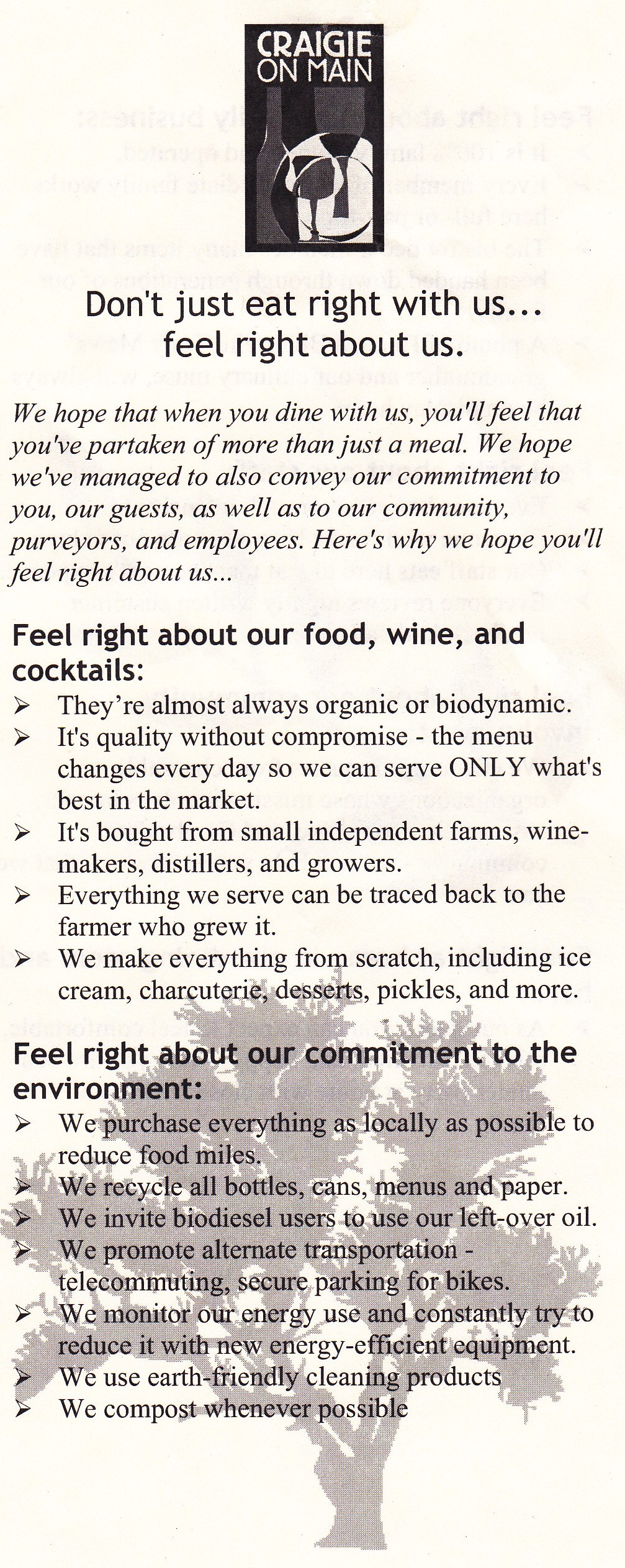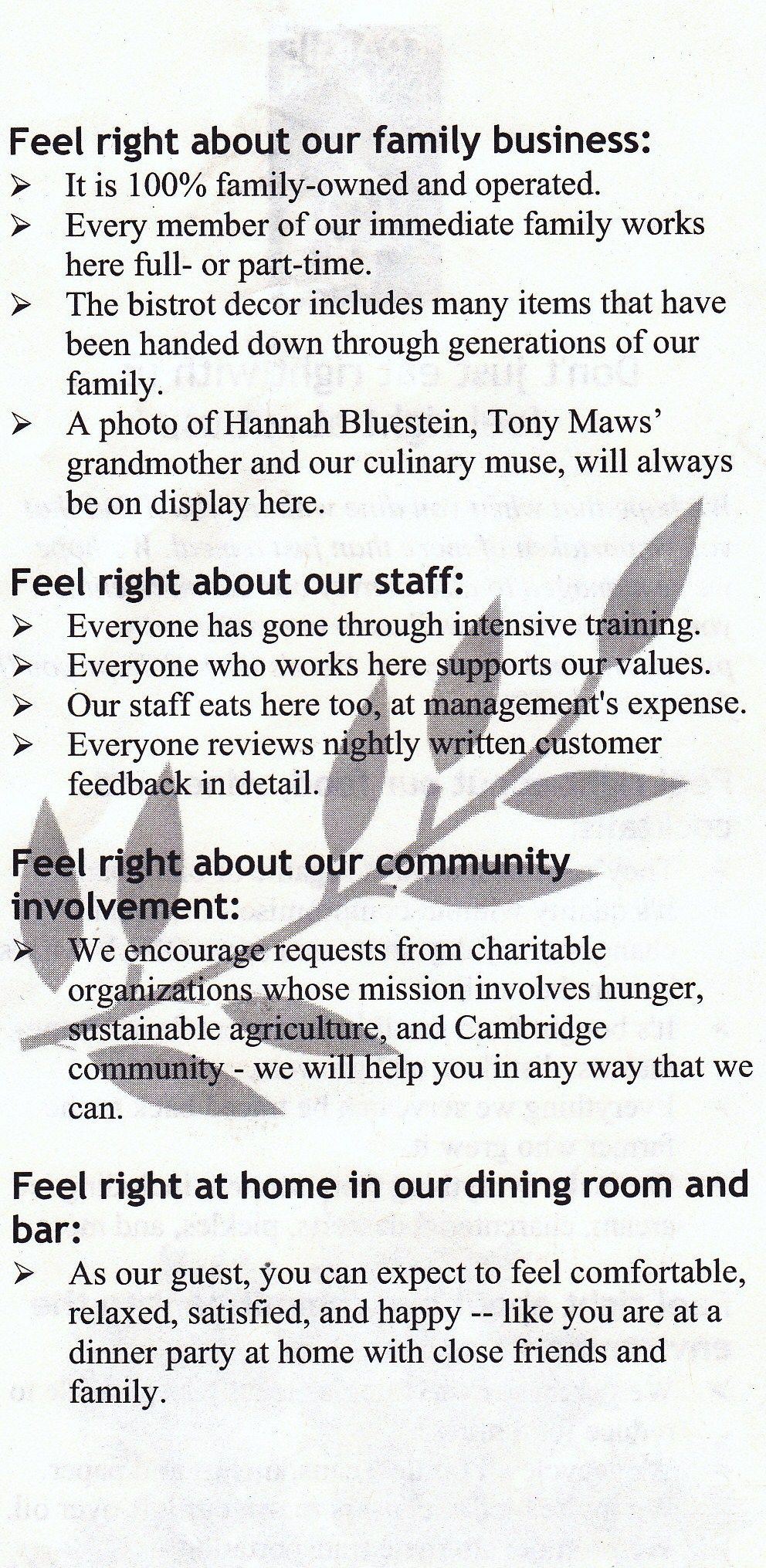Last week I attended an interesting dinner hosted by the Boston chapter of Net Impact. The event was called "Eco-labelling: From Certification to Greenwashing" and it featured Stas Antons, Principal at Jump To Green, Inc., a new start-up that uses interactive labelling technology to create personalized, green labels for products and companies. I've been thinking a lot lately about certification systems and labelling programs, so I was excited to attend.
Before I go any further, it's probably a good idea to lay out exactly what I mean by labels. The way I see it, green or "eco" labels include any icon or graphic found on a packaged product or used in the rating of a product/company that somehow distinguishes that entity as environmentally or socially sustainable. Some examples include Energy Star (appliances), Fair Trade Certified (agriculture), LEED (buildings), and B Labs (companies).
Stas opened his remarks with a couple of interesting ideas. First, he said there are three essential problems with the green labelling movement (and trust me, it is quite the movement - a recent Detroit News article claimed there are over 300 organizations now offering their own form of certification for green products and companies):
1) There are no standards in labelling, so there is no way to tell what one label means as compared to another.
2) It's hard to tell the real story behind the product because labels will mean different things to different people. Take the USDA Organic label: not only is the word "organic" interpreted differently, but the USDA's website doesn't offer much clarity either!
3) Because there are so many certification and labelling programs out there, the level of trust on the part of consumers is very low. Add to that the fact that articulating a product or company's entire backstory or mission through a small label is practically impossible, and you've got a recipe for confusion.
The second point that Stas made, that I thought was particularly telling, was that he is considering removing the word "Green" from the name of his company. As we all can attest, these days the word green is so overused that it's practically meaningless. In fact, some would argue (myself included) that particularly savvy consumers now see the word Green and run in the opposite direction, thinking it's simply a marketing ploy to get people to open up their wallets.
This point led to a particularly interesting discussion on the role that consumers play in all of this. In general the consensus of those folks in attendance (a group of about 20 sustainability and CSR professionals) was that consumers don't quite understand the "language" of sustainability. While many consumers are interested in supporting green products and companies, their attempts to do so are often misguided. Instead of making smart choices based on education and facts, consumers often flock to words they know and understand, like "recycled content". This makes it challenging for consumers to separate "real" sustainability leaders from other half-hearted campaigns that just throw in this sort of lingo. In turn, it makes it difficult for companies genuinely focused on sustainability to stand out in a crowded field of green competitors.
It's true that our marketplace is saturated with green labels, and consumers must take responsibility for educating themselves and learning how to distinguish between real sustainability campaigns and imposters. But truly responsible companies must also engage their consumers in a candid and honest dialogue about what they're doing to make their products and services more environmentally sustainable.
While the conversation at dinner continued, I couldn't help but think of my own work at ABC. All day long I consider ways that the company can include and involve its employees in its philanthropic efforts, and one of the big reasons is so that each employee is educated enough to go out in the community and act as a company ambassador. When you think about it, each ABC employee is also a consumer - of ABC products and others - so the more educated the employees are about the environment, about philanthropy, and about sustainability in general, the better consumers they become.
Sure, companies must do better at engaging external audiences in this sustainability conversation. But I wondered, "What are they doing at home?".
I tried asking this of the group, and unfortunately (and perhaps tellingly), I couldn't really get a clear answer. The moment passed, and the conversation quickly turned to other issues like the premium price tag often attached to green products. All in all, it was a thought-provoking evening - but I just couldn't shake the feeling that we were missing a key point: if companies can't talk to their own employees about why their products are good for the Earth, how can they possibly tell a compelling story to their customers?
This is where the "You" part in this post's title comes in: have you worked for a company that's done a good job of communicating both externally and internally what it's doing for environmental or social responsibility? How did they do it? I'd really love to hear your examples/anecdotes/personal experiences. And I'm going to keep working on it on my end - both during my time at ABC as an intern and also as I head back to school and keep learning. I really do think that these initiatives - whether environmental, social, or philanthropic - must start at home (or in this case the office), and the more companies involve their employees in this conversation, the more loyal consumers they will eventually attract.
**Coincidentally, my dear friend Alexandra Michalko just published an article on The EcoInnovator entitled "Untangling the Web of Green Product Credentials". Another great perspective on eco-labelling and greenwashing issues. Thanks for sharing Alex!



